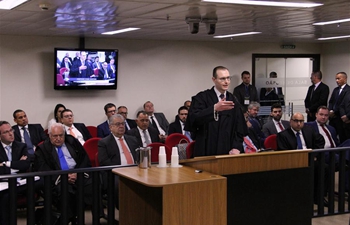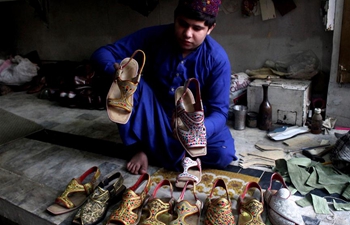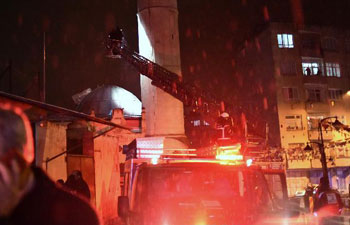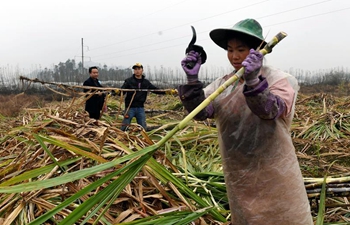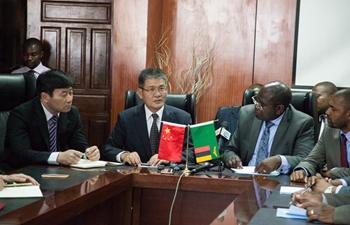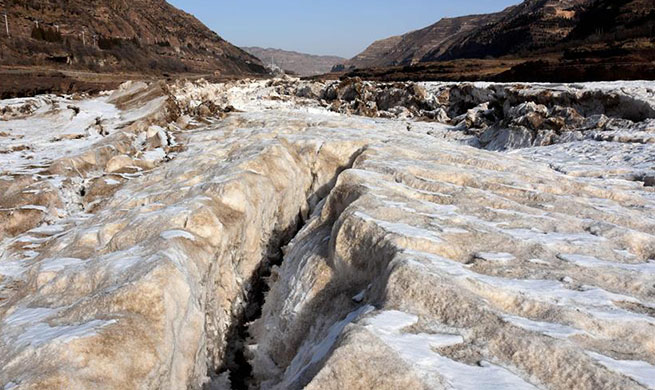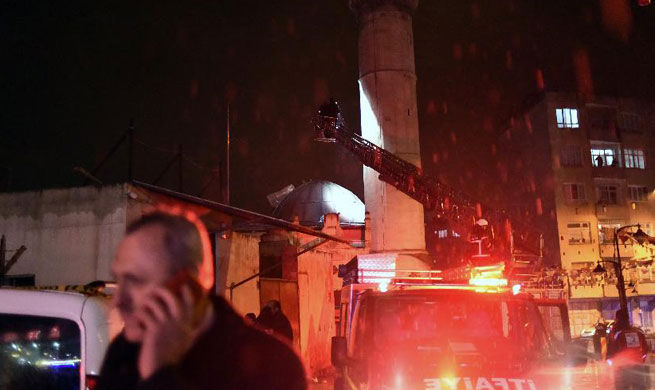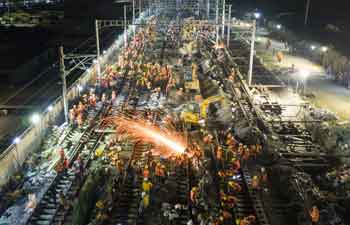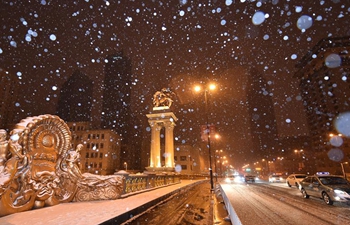CAPE TOWN, Jan. 24 (Xinhua) - South Africa's Western Cape Province on Wednesday urged the central government to help address the depeening water crisis in Cape Town.
The provincial cabinet resolved to take whatever steps are necessary to recover the money from the national government to cover the cost of the current water crisis, said Michael Mpofu, spokesperson for Premier Helen Zille.
While it is a provincial competence to manage provincial disasters, bulk water supply is a competency of the national Department of Water & Sanitation under the Constitution and the National Water Act, Mpofu said.
Managing the disaster must involve increasing bulk water supply, which the Western Cape government will have to commission in the short term, he said.
Earlier this week, Zille urged President Jacob Zuma to declare the water crisis in Cape Town "a national disaster". But Zuma has not responded yet.
A national disaster will oblige all national departments concerned to assist efforts to tackle a crisis.
The City of Cape Town, administered by the opposition Democratic Alliance (DA), has been hit by the worst drought in history.
On Monday, the city announced April 12 as Day Zero, nine days earlier than the previously suggested day of April 21.
Day Zero refers to the time when dams supplying water to Cape Town run dry, water taps are switched off and residents have to collect water at more than 200 designated points.
In a recent article, the New York Times predicted that Cape Town would become the first metropolis in the world to run out of water.
Last week, the city announced 6B water restrictions, limiting water usage per person per day to 50 litres for the next 150 days.
Level 6B restrictions will also limit irrigation using boreholes and wellpoints.
The new restrictions will come into effect on February 1.
The city has also introduced punitive tariff on families for using above 6,000 litres per month.
Also on Wednesday, Zille reiterated the necessity to save water.
"While the Western Cape government continues to coordinate the current disaster, we can still avoid Day Zero if everyone remains within the limit of 50 litres per person per day. Save water like your life depends on it, because it does," Zille said.
Currently dam levels around the city are at 26.5 percent. When dam levels reach 13 percent, the water will not be drinkable.
As the second-most populous urban area in South Africa after Johannesburg, Cape Town is the capital of the Western Cape Province and the seat of South Africa's Parliament, with a population of about six million.
The number of domestic and international tourists visiting the city reaches more than five million every year.




